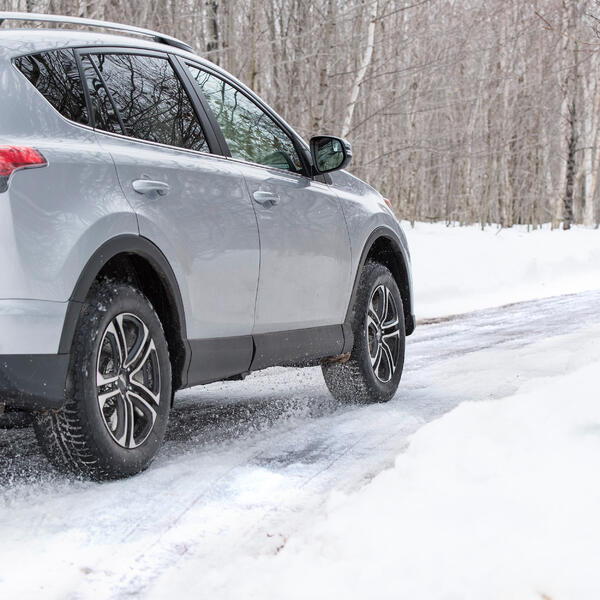Canadians know winter, and the majority know winter tires can help keep them safe during unpredictable and slippery road conditions.

In 2021, 69 per cent of Canadian drivers used winter tires (that excludes Quebec where they are mandatory). Further, 79 per cent of Canadian drivers who equipped their vehicles with winter tires say their tires saved them from a potentially hazardous driving situation.
“The facts are that winter tires are designed to function in the cold, snowy conditions of winter,” says Russell Shepherd, technical communications director, Michelin North America. “They’re certainly much better than any other type of tires in that weather.”
READ MORE: Time to swap summer for winter tires
In partnership with Michelin, we look at why and how winter tires will help keep you safe this winter.
- Winter tires work differently than regular tires
No matter what kind of vehicle you drive, tires connect your car to the road. So even if your car has all kinds of bells and whistles, keeping safe in ice and snow comes down to the tire itself.
“If you don’t have grip, you have a big problem,” says Carl Nadeau, Michelin spokesperson and driving safety expert. “That’s why we absolutely need not only winter tires but high-quality winter tires.”
READ MORE: Better to swap all-season for winter tires say experts
Winter tires have a thicker rubber compound than regular or all-season tires, says Nadeau, which allows the tire to remain flexible in cold weather. These tires are designed to stop and go, with features that grab the snow for ideal traction and evacuate the water when icy conditions hit.

Get breaking National news
- Winter tires adapt to changing road conditions
According to Nadeau, constantly changing Canadian climates mean drivers need winter tires that are equipped to deal with evolving road conditions—especially when those conditions change over the course of a day.
“On a given winter day you can have perfect asphalt then snow, water, sludge and ice. And that’s only 24 hours,” he says.

- All-season tires won’t cut it in Canadian winters
Nadeau uses a footwear analogy to explain the different types of tires, and why each serves a different function. If summer tires are like running shoes or even flip-flops, all-season tires are like rainboots and winter tires are like a good set of winter boots.
“Yes, all-season tires technically work in most conditions,” he says. “In Canada, we get a lot of different conditions, and one thing people underestimate is that winter tires aren’t just built for snow or ice, but for cold and freezing weather.”
READ MORE: Don’t wait to install winter tires
Shepherd adds that while some may believe a good set of all-season tires will cut it, during colder winter months all-season tires lose some of their functionality.
“It can take about 64 metres to stop on an icy road,” he explains, noting that’s about eight times as long as it should take to stop on a dry road. “That is why we need specialized tires that can give you good traction, particularly in snow and ice.”
- Winter tires are designed for different needs
Just as no two sets of tires are created equally, Nadeau and Shepherd reveal there are different sets of winter tires to choose from, depending on your car and needs.
“Every Canadian should have winter tires in the winter. It’s a no-brainer. But in the winter tire category, there are different tires for specific needs,” Nadeau explains.
He says while most people will be happy with a winter tire that can do everything, some drivers want winter tires designed for a high-performance vehicle.
READ MORE: Winter tires mandatory in B.C.
“Most of their driving is probably like, Montreal or Toronto highway-driving, and they want the steering wheel to feel like they’re driving on summer tires with the precision,” says Nadeau.
When selecting winter tires, it’s important to focus on the tread design and materials, adds Shepherd. From there, think about how those tires will hold up with the experience of your drive (such as noise or weight) to help with your selection.
- Winter tires take different locales into consideration
In addition to assessing your needs, it’s important to consider where you live and what kind of driving you’ll be doing during the winter. Highway driving and country road driving aren’t the same, nor are hilly roads and flat surfaces.
“When you’re going down the hill on pure ice, those are not conditions everyone will see every day on the road,” says Nadeau. “But those are conditions I see every weekend at the cottage. That’s why Michelin has so many different tires to choose from. You need a tire that’s going to be able to live with those conditions.”
To learn about the importance of winter tires in Canada’s climate, visit Michelin.ca.

